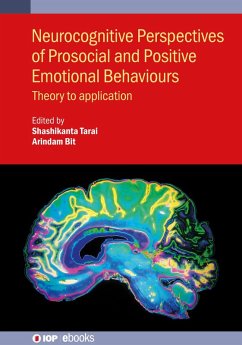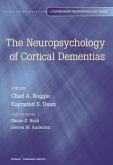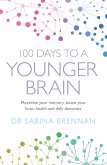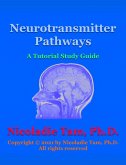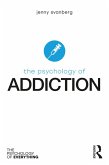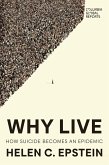Neurocognitive and behavioural science is a unique discipline with the potential to develop new research in the fields of neuroscience and social, biological and engineering sciences. This book focuses on prosocial behaviours and language evolution, explaining their neural functions and neurocognitive biomarkers in the context of a socio-affective and population neuroscience approach. Adopting a multidisciplinary ethos, the book surveys social, political, economic, cultural, computational and linguistic issues in brain processing and functions in terms of neural representation.
Combining the authors' own research with a comprehensive survey of the field, the book marshals impressive evidence to explore the idea that prosocial and positive emotional behaviours enhance the neurocognitive plasticity of the human brain. This discussion is contextualised against an analysis of the biomarkers for neurodegenerative diseases, demonstrating the relationship between them. The authors discuss the relationship between prosocial and positive action and the recovery of brain tissue loss, blood-brain-barrier (BBB) breakdown, brain hypo-perfusion and inflammatory responses predict the onset of neurodegeneration (ND), in particular in the early stages of Alzheimer's disease (AD).
This text is an ideal reference for the laboratories of neuroscience, clinical linguistics, neurolinguistics and cognitive sciences. It also comprises a useful interdisciplinary course text for undergraduate and graduate students.
Combining the authors' own research with a comprehensive survey of the field, the book marshals impressive evidence to explore the idea that prosocial and positive emotional behaviours enhance the neurocognitive plasticity of the human brain. This discussion is contextualised against an analysis of the biomarkers for neurodegenerative diseases, demonstrating the relationship between them. The authors discuss the relationship between prosocial and positive action and the recovery of brain tissue loss, blood-brain-barrier (BBB) breakdown, brain hypo-perfusion and inflammatory responses predict the onset of neurodegeneration (ND), in particular in the early stages of Alzheimer's disease (AD).
This text is an ideal reference for the laboratories of neuroscience, clinical linguistics, neurolinguistics and cognitive sciences. It also comprises a useful interdisciplinary course text for undergraduate and graduate students.
Dieser Download kann aus rechtlichen Gründen nur mit Rechnungsadresse in A, D ausgeliefert werden.

